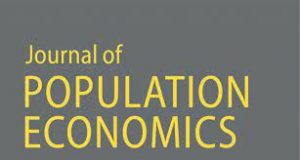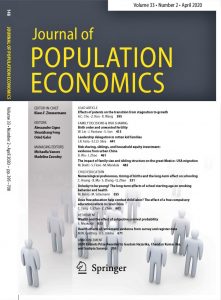
The labor market returns to “first-in-family” university graduates
Anna Adamecz-Völgyi, Morag Henderson & Nikki Shure
Journal of Population Economics (2022) Published:
Abstract
We examine how first-in-family (FiF) graduates — those whose parents do not have university degrees — fare in the labor market in England. We find that among women, FiF graduates earn 7.4% less on average than graduates whose parents have a university degree. For men, we do not find a FiF wage penalty. A decomposition of the wage difference between FiF and non-FiF graduates reveals two interesting findings. First, two-thirds of the female FiF penalty is explained by certain characteristics, including having lower educational attainment, not attending an elite university, selecting particular degree courses, working in smaller firms, working in jobs that do not require their degree, and motherhood. Second, FiF graduate men also differ in their endowments from non-FiF graduate men; however, FiF men earn higher returns on their endowments than non-FiF men and thus compensate for their relative social disadvantage, while FiF women do not. We also estimate the returns to graduation for potential FiF and non-FiF young people. We find that the wage returns to graduation are not lower among FiF graduates compared to those who match their parents with a degree.


